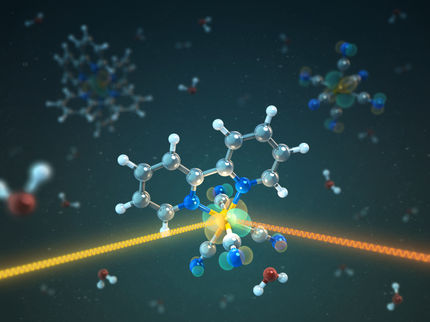Breaking the limit
Researchers introduce new transition metal carbonyl complexes relevant to textbooks and applications
Since the end of the 19th century, transition metal carbonyls have been an important and familiar class of compound in coordination chemistry and organometallic chemistry. In these materials, carbon monoxide molecules (CO) are bound to transition metals as the central atom. In this subject area, the team of Prof. Dr. Ingo Krossing and Wiebke Unkrig of the Institute of Inorganic and Analytical Chemistry at the University of Freiburg has succeeded in synthesizing brand-new transition metal carbonyl complexes – Ta2(CO)12 and M(CO)7+, where the metal atoms M are Niobium (Nb) and Tantalum (Ta). In many aspects, these substances go beyond current compound limits. As a result, they transcend new chemical frontiers that are relevant for practical use as well as basic science.

Symbolic image
Photo by Markus Spiske on Unsplash
They have synthesized the dinuclear compound Ta2(CO)12 – which is considered the first new, neutral carbonyl complex to be synthesized in the 21st century. What is more, they managed to “bottle” positively charged carbonyl complexes with seven CO ligands by combination with a weakly-coordinating anion as a stable substance. No matter which of the thirty known transition metals were used, until now, complex compounds with more than six CO molecules were not accessible in substance. Evidence for such molecules was observed only in the gas phase.
The bonding modes of these types of complexes is not fully explained. Many of the compounds in the new, positively-charged class of substances are as yet unknown. For many years, Krossing and Unkrig’s working group has been investigating weakly-coordinating anions that allow them to approximate the conditions of the gaseous state. They now aim to synthesize such prototypical, positively-charged molecules as “bottleable” substances in condensed form, in order to investigate them using a variety of methods. The researchers would then be able to demonstrate that these substances can play a role in applied chemistry in addition to serving as examples in textbooks.
Original publication
Other news from the department science

Get the chemical industry in your inbox
By submitting this form you agree that LUMITOS AG will send you the newsletter(s) selected above by email. Your data will not be passed on to third parties. Your data will be stored and processed in accordance with our data protection regulations. LUMITOS may contact you by email for the purpose of advertising or market and opinion surveys. You can revoke your consent at any time without giving reasons to LUMITOS AG, Ernst-Augustin-Str. 2, 12489 Berlin, Germany or by e-mail at revoke@lumitos.com with effect for the future. In addition, each email contains a link to unsubscribe from the corresponding newsletter.

























































